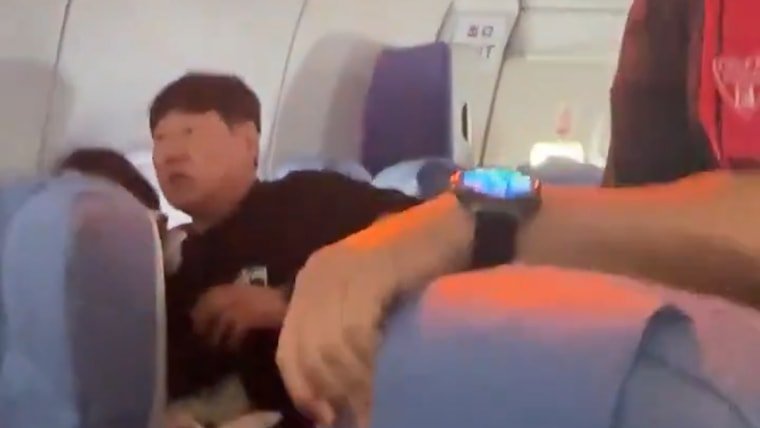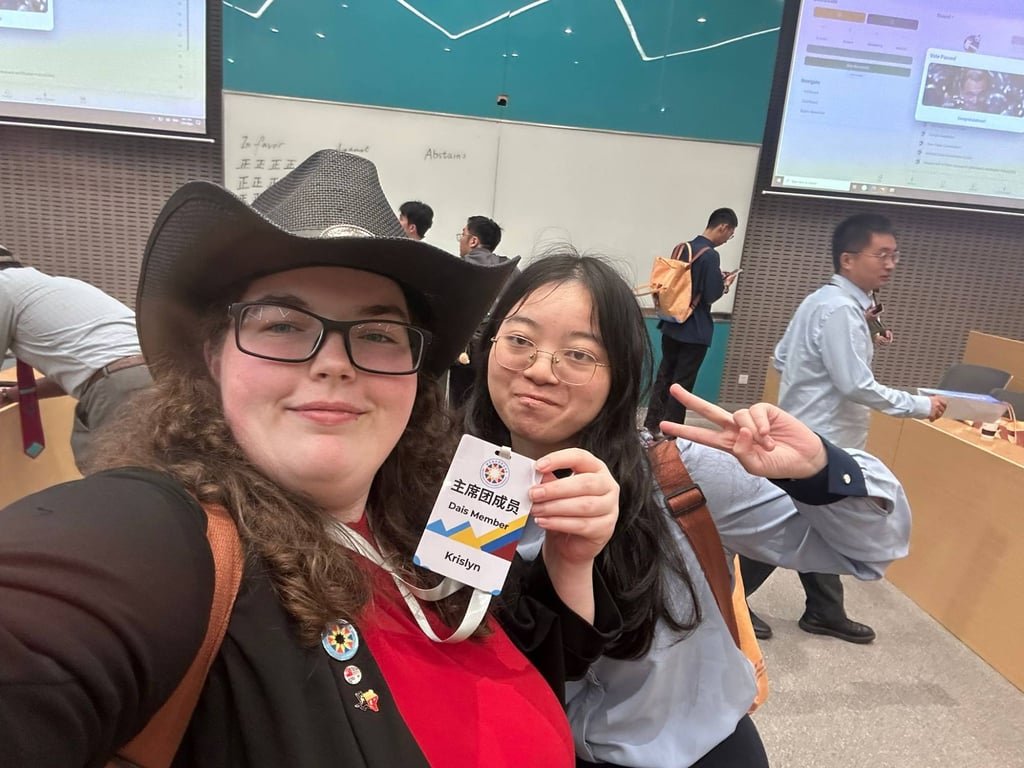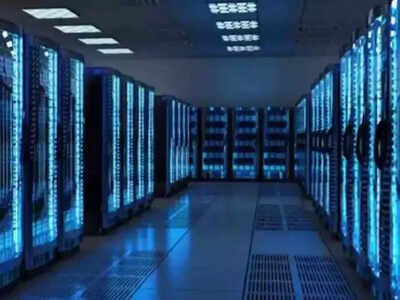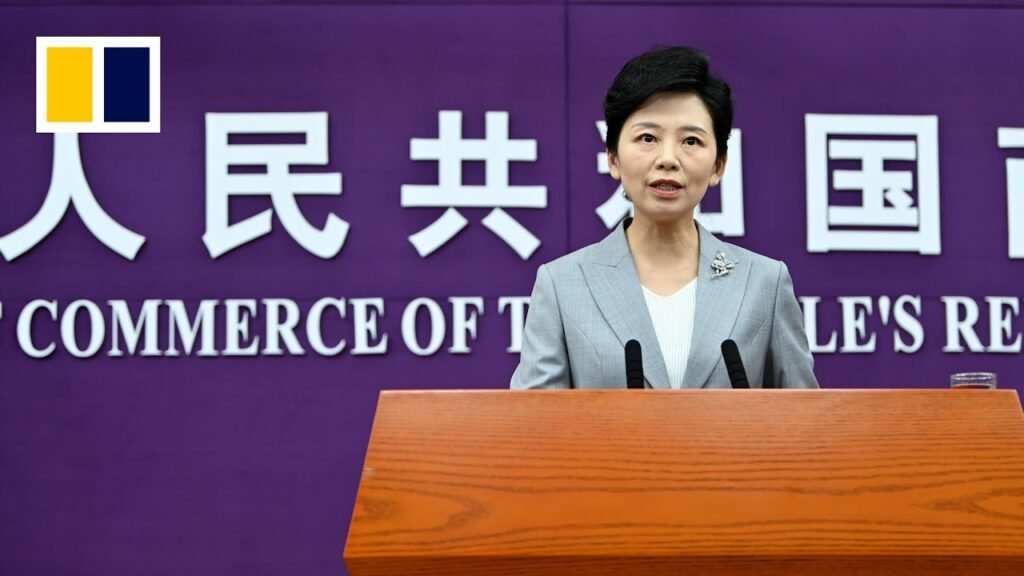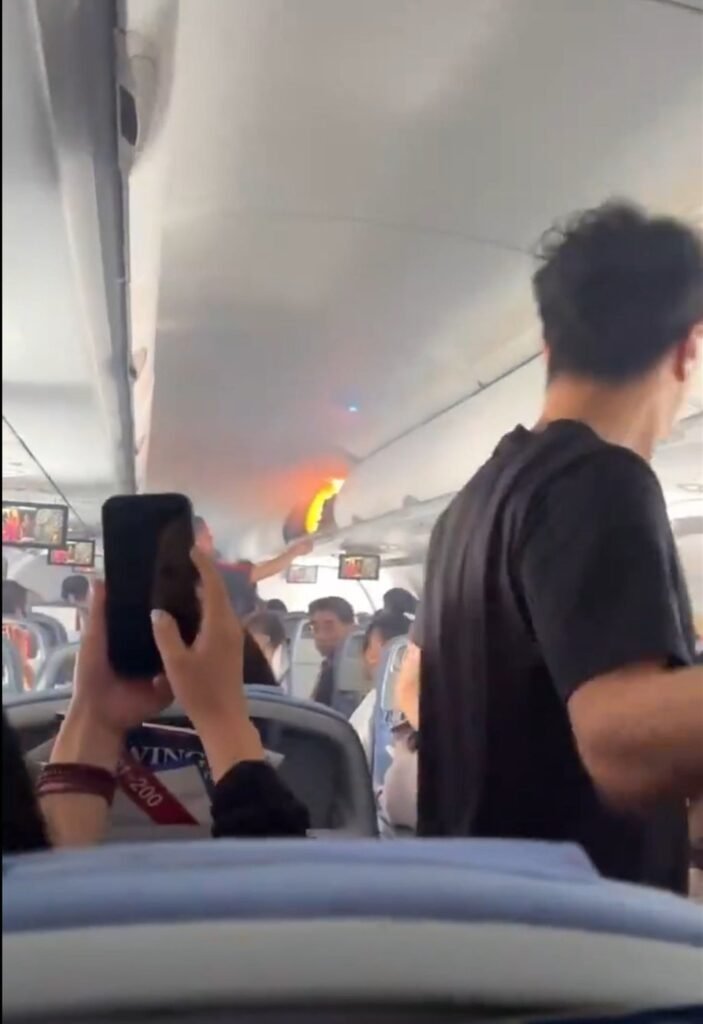Osmond ChiaBusiness reporter

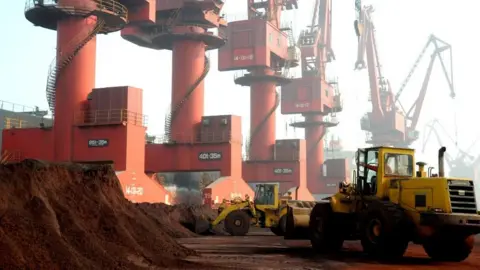 Reuters
ReutersLast week, China’s Ministry of Commerce published a document that simply went by the name of “announcement No. 62 of 2025”.
But this wasn’t just any bureaucratic missive. It has rocked the fragile tariffs truce with the US.
The announcement detailed sweeping new curbs on its rare earth exports, in a move that tightens Beijing’s grip on the global supply of the critical minerals – and reminded Donald Trump just how much leverage China holds in the trade war.
China has a near-monopoly in the processing of rare earths – crucial for the production of everything from smartphones to fighter jets.
Under the new rules, foreign companies now need the Chinese government’s approval to export products that contain even a tiny amount of rare earths and must declare their intended use.
In response, US President Donald Trump threatened to impose an additional 100% tariff on Chinese goods and put export controls on key software.
“This is China versus the world. They have pointed a bazooka at the supply chains and the industrial base of the entire free world, and we’re not going to have it,” said US Treasury Secretary Scott Bessent.
On Thursday a Chinese Commerce Ministry spokesperson countered, saying that shortly after the China-US economic and trade talks in Madrid in September, “and despite repeated dissuasion from the Chinese side, the US side introduced 20 measures to suppress China within just over 20 days”.
This week, the world’s two biggest economies also imposed new port fees on each other’s ships.
The flare-up in the trade war brings to an end months of relative calm after top US and Chinese officials brokered a truce in May.
Later this month, Trump and China’s President Xi Jinping are expected to meet and experts have told the BBC the rare earths restrictions will give China the upper hand.
China’s new controls are bound to “shock the system” as they target vulnerabilities in American supply chains, said international business lecturer Naoise McDonagh from Australia’s Edith Cowan University.
“The timing has really upset the kind of timeline for negotiations that the Americans wanted,” he added.

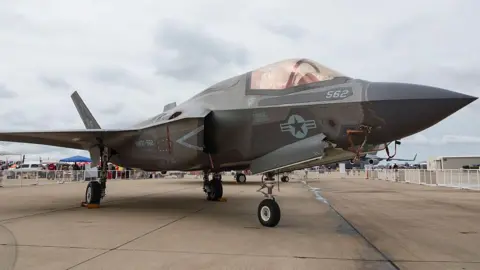 Getty Images
Getty ImagesRare earth minerals are essential for the production of a whole range of technology such as solar panels, electric cars and military equipment.
For example, a single F-35 fighter jet is estimated to need more than 400kg (881.8lb) of rare earths for its stealth coatings, motors, radars and other components.
China’s rare earth exports also account for around 70% of the world’s supply of metals used for magnets in electric vehicle motors, said Natasha Jha Bhaskar from advisory firm the Newland Global Group.
Beijing has worked hard to gain its dominance of the global rare earth processing capacity, said critical minerals researcher Marina Zhang from the University of Technology Sydney.
The country has nurtured a vast talent pool in the field, while its research and development network is years ahead of its competitors, she added.
While the US and other countries are investing heavily to develop alternatives to China for supplies of rare earths, they are still some way from achieving that goal.
With its own large deposits of rare earths, Australia has been tipped as a potential challenger to China. But its production infrastructure is still underdeveloped, making processing relatively expensive, Ms Zhang said.
“Even if the US and all its allies make processing rare earths a national project, I would say that it will take at least five years to catch up with China.”
The new restrictions expand measures Beijing announced in April that caused a global supply crunch, before a series of deals with Europe and the US eased the shortages.
The latest official figures from China show that exports of the critical minerals were down in September by more than 30% compared to a year ago.
But analysts say China’s economy is unlikely to be hurt by the drop in exports.
Rare earths make up a very small part of China’s $18.7tn a year economy, said Prof Sophia Kalantzakos from New York University.
Some estimates put the value of the exports at less than 0.1% of China’s annual gross domestic product (GDP).
While rare earths’ economic value to China may be tiny their strategic value “is huge”, she said, as they give Beijing more leverage in talks with the US.
Despite accusing China of “betrayal”, Bessent has left the door open to negotiations.
“I believe China is open to discussion and I am optimistic this can be de-escalated,” he said.
What China has done recently is “getting its ducks in a row” ahead of those trade talks with the US, said Prof Kalantzakos.
In curbing rare earth exports, Beijing has found its “best immediate lever” to pressure Washington for a favourable deal, Ms Bhaskar said.

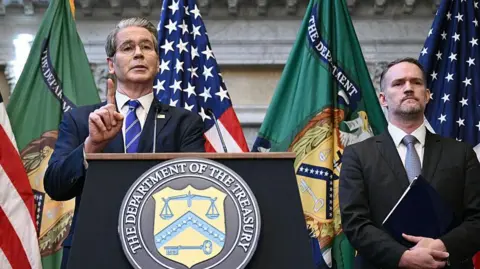 Getty Images
Getty ImagesJiao Yang from Singapore Management University believes that although Beijing holds the cards in the short-run, Washington does have some strategic options at its disposal.
The US could offer to lower tariffs, which is likely to be attractive to Beijing as the trade war has hit its manufacturers hard, said Prof Jiao said.
China’s economy is reliant on the income from the goods it makes and exports. The latest official figures show its exports to the US were down by 27% compared to a year ago.
Washington can also threaten to hit China with more trade restrictions to hamper efforts to develop its technology sector, said Prof McDonagh.
For example, the White House has already targeted China’s need for high-end semiconductors by blocking its purchases of Nvidia’s most advanced chips.
But experts say that is likely to have only limited effects.
Measures targeting Beijing’s tech industry may slow China but won’t “stop it dead in the water,” said Prof McDonagh.
China has shown with its recent economic strategy that it is willing to take some pain to achieve its long-term goals, he added.
“China can carry on even if it costs a lot more under US export controls.
“But if China cuts off these rare earth supplies, that can actually stop everyone’s industry. That’s the big difference.”

